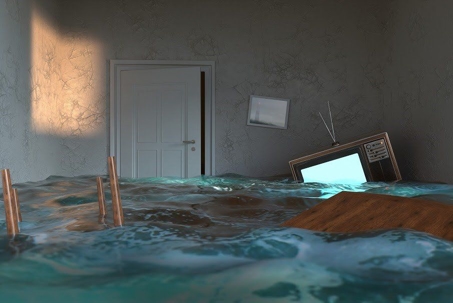Floodwater can damage your house's structure, electrical system, and contents, among other dangers. Luckily, a sump pump can protect your home by pumping out water during a flood. Evaluate your need for a sump pump, especially if you have just bought or constructed a home. Below are some things that elevate your need for a sump pump.
Flooding History
You may need a sump pump if your area has a flooding history or your basement has flooded in the past. The Federal Emergency Management Agency (FEMA) has an online tool you can use to gauge your area's flood risk. You just enter your area or address in the map and check the results.
Other ways to gauge flood risk include:
- Ask your neighbors, especially those who have been in the area a while, about their flood experiences.
- Scrutinize the property's comprehensive loss underwriting evaluation (CLUE) report for flood claims.
- Assess the property for past water damage in the basement, such as mold growth.
Anything that proves a history of flooding means the home can flood again.
Heavy Rain or Snow History
Heavy rainfall or snowfall increases the risk of flooding; water from melting snow can easily flood your basement and cause damage. Thus, you should also check your local weather and climate and gauge the level of precipitation it receives per year.
Flatland Location
High precipitation doesn't always lead to flooding if the water can flow safely away. But that might not be the case if your home sits on a flatland. In such a case, most of the precipitation you receive will remain in the area, increasing the risk of flooding.
Sloping Yard or Hilly Surroundings
Floodwater flows under the force of gravity. That means the water will move from high ground to low ground. This fact should concern you if your yard slopes towards your house. In such a case, yard water can easily flow into and flood your basement.
You should also be concerned if you have some hills around your house. Water flowing down the hills can also flood your home.
Poorly Draining Soils
The quality of soil drainage also matters. With good soil drainage, most of the precipitation you receive will safely drain away and end up in underground water reservoirs. With poor soil drainage, the water drains slowly and stands on the surface for a long time. The longer the water stagnates, the higher the risk it might reach the basement.
You should suspect poor soil drainage if water usually stagnates in your yard after a rainfall. You can also test your soil drainage yourself. To do this, dig a hole (a foot or so of depth is enough), fill it with water, and measure the water drop per hour. A drop of less than an inch per hour means poor soil drainage. You can also hire a professional to help you determine if you have good soil drainage
Valuable Basement
Lastly, even without the risks above, you should also err on the side of caution and install a sump pump if you have a valuable basement. For example, if you have a finished basement that you use as an additional room. A flooding incident can damage the possessions you keep in your basement. The same is true if you have an unfinished basement that you use as an additional storage room.
An experienced plumber can also help you assess your sump pump needs. At PlumbRite, we have over 20 decades of experience in the plumbing industry. Contact us for a consultation or quote, and we will help you protect your basement from the dangers of floodwater.The body content of your post goes here. To edit this text, click on it and delete this default text and start typing your own or paste your own from a different source.
Additional Service Areas
Omaha, NE
La Vista, NE
Bellevue, NE


